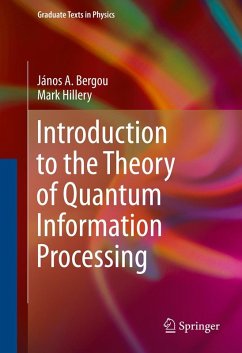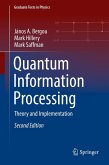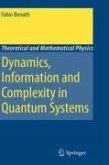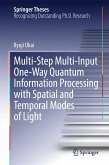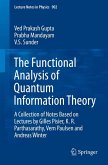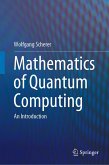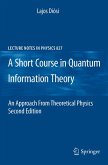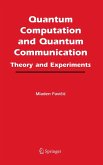Introduction to the Theory of Quantum Information Processing provides the material for a one-semester graduate level course on quantum information theory and quantum computing for students who have had a one-year graduate course in quantum mechanics. Many standard subjects are treated, such as density matrices, entanglement, quantum maps, quantum cryptography, and quantum codes. Also included are discussions of quantum machines and quantum walks. In addition, the book provides detailed treatments of several underlying fundamental principles of quantum theory, such as quantum measurements, the no-cloning and no-signaling theorems, and their consequences. Problems of various levels of difficulty supplement the text, with the most challenging problems bringing the reader to the forefront of active research.
This book provides a compact introduction to the fascinating and rapidly evolving interdisciplinary field of quantum information theory, and it prepares the reader for doing active research in this area.
This book provides a compact introduction to the fascinating and rapidly evolving interdisciplinary field of quantum information theory, and it prepares the reader for doing active research in this area.
Dieser Download kann aus rechtlichen Gründen nur mit Rechnungsadresse in A, B, BG, CY, CZ, D, DK, EW, E, FIN, F, GR, HR, H, IRL, I, LT, L, LR, M, NL, PL, P, R, S, SLO, SK ausgeliefert werden.

